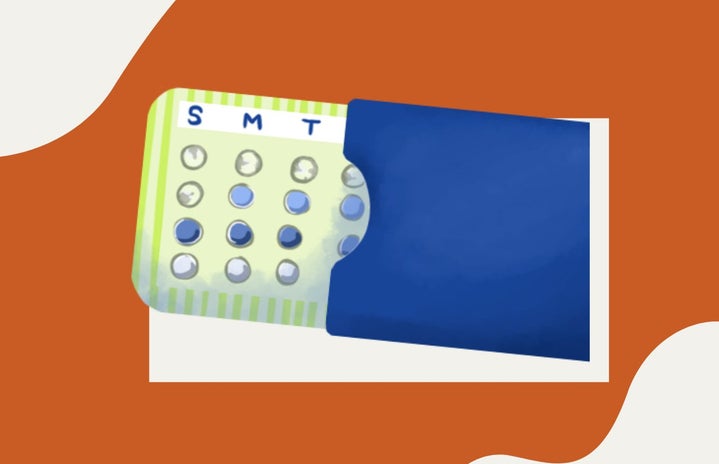The pill is one of the most popular methods of contraception amongst women. Many girls as young as 15 years old turn to the pill for reasons beyond preventing pregnancy. Because it so closely interacts with your hormones, birth control can have side effects such as controlling acne and lightening periods or menstrual cramps. They could be on the pill whether or not they’re having sex. But with the positives come the negatives, and the pill can have some harsh effects as well, mainly how it interacts with your brain.
You may have heard some of your friends complain about their mood swings on birth control. While not everyone detects these changes, there are some valid reasons for their experience, and it’s not an inherent consequence of being a woman. Although research is still ongoing, there are new findings that feelings of anxiety and depression are amplified due to the pill.
A study conducted in Denmark traced the mental health of all women aged 15-34 for more than a decade. It was found that women on hormonal contraceptives (including the patch, vaginal ring or IUD) were more likely to be diagnosed with depression by 50%. Although there is still some uncertainty about whether or not there was some causal relationship (especially when only looking at the pill), there is an explanation for why this may potentially be the root of the problem.
According to evolutionary psychologist Sarah E. Hill, there are a couple potential contributors as to why women may feel moody on the pill. First, it has been observed that women on the pill have a weakened HPA axis, which is a main contributor to our body’s response to stress. This can be harmful to mental health and our emotional response to our environment.
The pill can also tamper with our neurotransmitter systems, which are chemicals that the brain uses to communicate with the rest of the body. The progestin found in the pill can lower the levels of natural sedatives in our body which can cause problems with mental health. There are also changes in dopamine and serotonin levels.
Lastly, the estrogen in our body works to amplify good feelings. The progesterone found in the pill, though, dampens this effect. In general, the pill works to keep estrogen levels low, so there is a possibility that our good feelings based on reward processing in the brain are permanently reduced. Even so, there are some women who experience a boost in their mood. If they get bad PMS, the pill can stabilize their mood.
With girls going on the pill at such a young age, and most likely keeping with it until they’re much older, there is a lot that should be considered when it comes to their mental health. Most of these girls haven’t yet reached maturity, they are still developing in the mind and the body. With so much chemical intervention in the brain, they are developing under unnatural circumstances.
With a lack of research on the subject, there is no definitive way to pinpoint exactly what kind of harm the pill is accomplishing in the brain. Most people don’t even notice anything wrong since they’ve been on the pill for much of their development process.
Overall, there is no concrete evidence that the pill will harm your mood, especially since there’s variability within each person. Many scientists suggest keeping a journal or asking your friends if they notice a change in behavior. By doing so, you can keep tabs on yourself to ensure you’re still you, because mental health is just as important as your physical health. If the pill affects you too harshly, you might need to find an alternative way to control your periods, reduce your acne, or prevent pregnancy.



